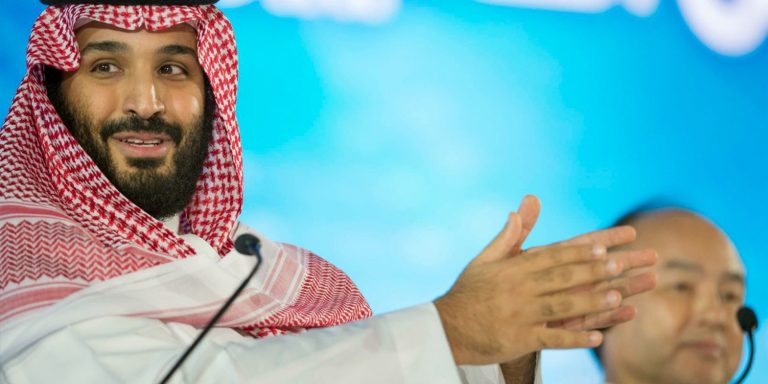INTELBRIEF
November 10, 2017
TSC IntelBrief: Tensions and Questions as the Saudi Crisis Deepens

• On November 9, the Saudi Foreign Ministry advised Saudi nationals not to travel to Lebanon and for those already there to leave as ‘soon as possible.’
• Some Lebanese officials have accused the Saudis of kidnapping Prime Minister Sa’ad Hariri, who resigned in a statement broadcast from Riyadh on November 4.
• A Saudi anti-corruption drive continues, with officials claiming more than $110 billion had been ‘misused through systematic corruption and embezzlement over several decades.’
• The instability buffeting the Kingdom is without precedent in Saudi history.
Saudi Crown Prince Mohammad bin Salman’s campaign to consolidate power appears to be ending one phase and beginning another. On the domestic front, his anti-corruption drive has detained some of the richest and most prominent figures in the country, among them a former rival for the Saudi throne and billionaire investor Prince Alwaleed bin Talal. Meanwhile, the Crown Prince is pushing back against Iranian influence in Lebanon, in an apparent effort to isolate Tehran’s leading proxy, Lebanese Hizballah.
Tensions between Riyadh and Beirut intensified on November 9, when the Saudi Press Agency (SPA) announced: ‘Due to the situations in the Republic of Lebanon, the official source at the Ministry of Foreign Affairs stated that Saudi nationals visiting or residing in Lebanon are asked to leave the country as soon as possible.’ Saudi citizens intending to travel to Lebanon were advised to change their plans as well. Riyadh has made similar warnings in the past — most recently this summer, when Saudi citizens were advised to leave Qatar, as the on-going crisis with Doha began. However, where Lebanon is concerned, the level of strain and uncertainty as to exactly what Saudi Arabia might do is very different, especially as it involves the nation’s Prime Minister.
Somewhat buried by the news of the Saudi purge, and the interception of a missile launched at Riyadh — described by Saudi officials as an ‘act of war’ by Iran — is the continuing mystery surrounding Lebanese Prime Minister Sa’ad Hariri’s November 4 resignation. In a televised speech from Riyadh, the Prime Minister claimed he risked assassination, while blaming Iran and Hizballah for creating a ‘state within a state’ within his country. It is unclear why Hariri decided to speak out now against a political reality that has been apparent in Lebanon for decades. Hariri’s whereabouts are also unclear and of increasing concern to Lebanese officials. Some have accused Riyadh of keeping Hariri under house arrest, a charge the Saudis have dismissed. Both Hariri’s resignation and the aftermath have been so bizarre, even by Lebanese political standards, that members of the Beirut government say they won’t consider the Prime Minister’s resignation official until he returns to Lebanon.
The uncertainty surrounding Riyadh’s plans for Lebanon, Iran and its proxies, has been matched by uncertainty as to how far its internal corruption purge would go. On November 9, Attorney General Saud al-Mojeb stated that 201 people had been detained, adding that at least $110 billion had been ‘misused through systematic corruption and embezzlement over several decades.’ While details on specific charges were not forthcoming, al-Mojeb said investigations were proceeding rapidly and that this first stage of the anti-corruption campaign would be ending soon.
The attorney general also specified that investigators had seized only personal bank accounts, in an apparent effort to allay investor fears of a possible government grab of corporate financial assets. According to a November 9 report by Reuters, officials in the United Arab Emirates have asked banks for information on the holdings of 19 detained Saudis with accounts in the UAE, including Prince bin Talal and former National Guard chief Prince Miteb bin Abdullah. Dubai is the Gulf’s financial center and a prime location for Saudi officials looking to recover billions belonging to the detainees. While Riyadh is determined to keep the ongoing purge and investigation from sparking investor concerns, the combination of its opaque internal dealings and increasing external problems — from its challenge to Iran to the terrible stalemate in Yemen — may make that an increasingly difficult long-term proposition.
For tailored research and analysis, please contact: info@thesoufancenter.org
.
.